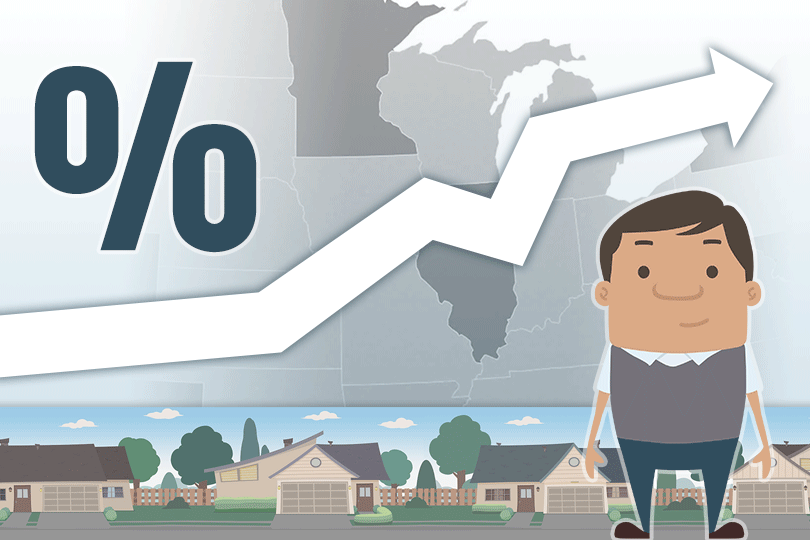What to Know About the FHA Loan Annual Percentage Rate (APR)

Your interest rate is the cost of borrowing money from your lender. It’s a percentage of the loan amount. APR, on the other hand, is a broader measure that takes into account the interest rate and certain fees and charges associated with the loan.
In this blog post, we'll explore the difference between interest rates and APR and why it's important to understand both when shopping for a home loan.
Definition of “Interest Rate”
A residential mortgage loan interest rate is the rate of interest charged on a home loan. This can be a fixed rate, which means the interest rate stays the same for the life of the loan, or an adjustable rate, which means the interest rate can change over time. This does not include any other costs or expenses associated with the loan.
What Is an APR?
The APR (annual percentage rate) is the annual cost of borrowing money, shown as a percentage. When you take out a home loan, the interest rate is not the only factor determining your borrowing cost. The Annual Percentage Rate (APR) is also important.
The FHA loan interest rate is the amount of interest you pay on your loan each year, as mentioned above, but your APR includes the interest rate plus broker fees, points, and certain closing costs.
The APR is important because it allows you to compare the total cost of different loans. For example, a loan with a low interest rate but high fees could have a higher APR than a loan with a higher interest rate but no fees.
When shopping for a home loan, ask your participating FHA lender about the APR and compare it to the interest rate.
The Main Differences Between the Two
It really is that simple; the main difference between APR and interest rate is that the APR includes additional fees associated with the loan, while the interest rate is simply the percentage of the loan amount that you will be charged in interest.
Other charges that may be included in the APR are broker fees, points, and certain closing costs. These can vary depending on the lender and loan terms, so it's important to ask about them when shopping for a home loan. Comparing APRs can help you better understand which loan will be more expensive in the long run.
It's also worth noting that your interest rate may change over time, even if your APR does not. This can happen if you have an adjustable-rate mortgage. With these loans, your interest rate is tied to an index, which can go up or down depending on market conditions. That means your monthly payments could go higher even if your APR stays the same.
------------------------------
Learn About the Path to Homeownership
Take the guesswork out of buying and owning a home. Once you know where you want to go, we'll get you there in 9 steps.
Step 1: How Much Can You Afford?
Step 2: Know Your Homebuyer Rights
Step 3: Basic Mortgage Terminology
Step 4: Shopping for a Mortgage
Step 5: Shopping for Your Home
Step 6: Making an Offer to the Seller
Step 7: Getting a Home Inspection
Step 8: Homeowner's Insurance
Step 9: What to Expect at Closing

Do you know what's on your credit report?
Learn what your score means.






